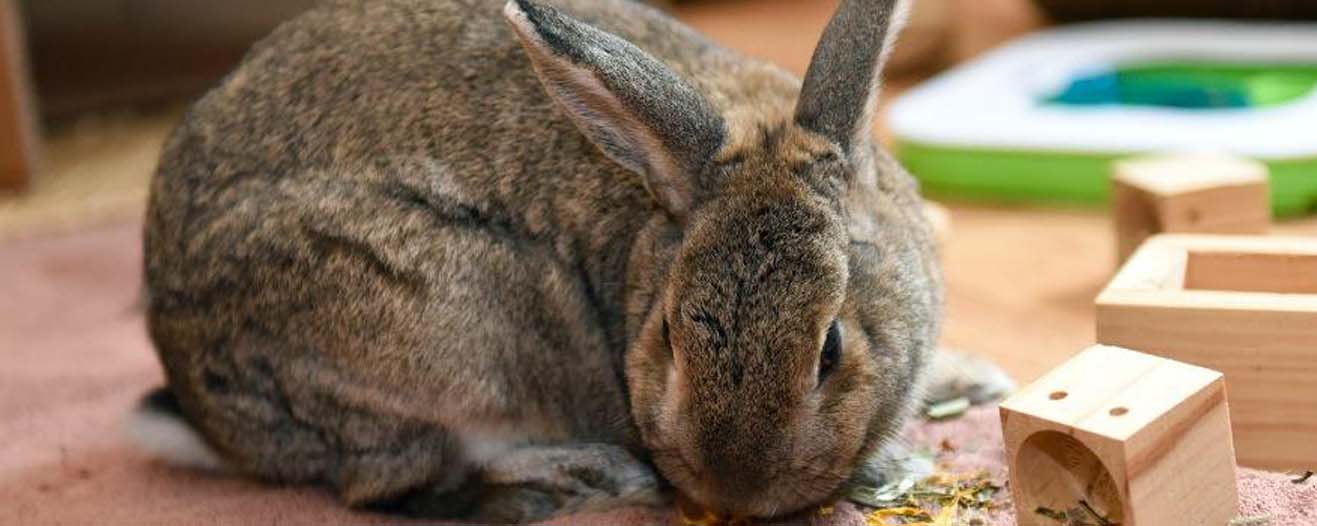- Find a Pet
- Advice and Welfare
- Ways to Give
- Get Involved
- What We Do
- Search
- My RSPCA
- Report a concern
- Gift in Wills
-
Colour modeVivid Calm
- Home
- Advice and welfare
- Pets
- Rabbits
- Behaviour
- Enrichment
- Dietary enrichment
Enhancing your rabbit's diet
In the wild, rabbits spend around 70% of their time eating grass and other plants. Hay and grass takes a long time to eat, which keeps them occupied. 'Dietary enrichment' is an item or toy that will provide mental stimulation by encouraging your rabbit's natural foraging behaviour. Here's what you need to know about it.

Hay as dietary enrichment for rabbits
Good quality hay (sweet-smelling and dust-free) and/or grass should constitute the majority of your rabbit's diet and they should always have it available. It's good for:
- Providing vital fibre
- Wearing down their constantly growing teeth
- Keeping digestive systems healthy
- Emotional wellbeing
You can give your rabbits hay in various ways. Keeping hay in racks or hanging baskets keeps it clean and above floor level. Placing these above litter trays may encourage rabbits to eat more hay.
Encouraging chewing and foraging
Chewing is natural behaviour and keeps your rabbit occupied.
You can encourage it with:
- Hay and/or grass and safe leafy greens,
- Wooden chew sticks designed for rabbits,
- Branches from fruit trees that aren't chemically treated.
Searching for food encourages natural foraging behaviour and keeps your rabbit busy.
Try:
- 'Scatter feeding' - scatter greens and/or daily pellet ration around their home,
- Hiding food under flower pots and in cardboard boxes or tubes with the ends stuffed with hay or shredded newspaper,
- Hanging up their greens so they have to stand on their back legs to reach them,
- Wrapping some pellets in brown paper for them to unwrap.
You can also give them food balls, puzzle feeders and mini 'Kongs', which provide mental stimulation and encourage natural foraging behaviour by making rabbits work and push them to get the pellets out.
If you use these:
- Initially supervise your rabbits to ensure the feeder size is suitable for them and that all rabbits can access the food
- Always check the opening isn't blocked and food can be removed easily
- If rabbits come to expect their feeders at a certain time, maintain this, as predictability can reduce stress
- Provide one feeder per rabbit, to avoid one rabbit monopolising a feeder
- This food should be part of, and not in addition to, their normal daily amount of food
Try to feed your rabbits when they're most active and like to graze and forage, so in the early morning, late afternoon and overnight. Give them constant access to hay and/or grass, and at night check there's enough hay to last until the morning.
Learn more about a healthy diet for rabbits and read our guidance for using enrichment.



